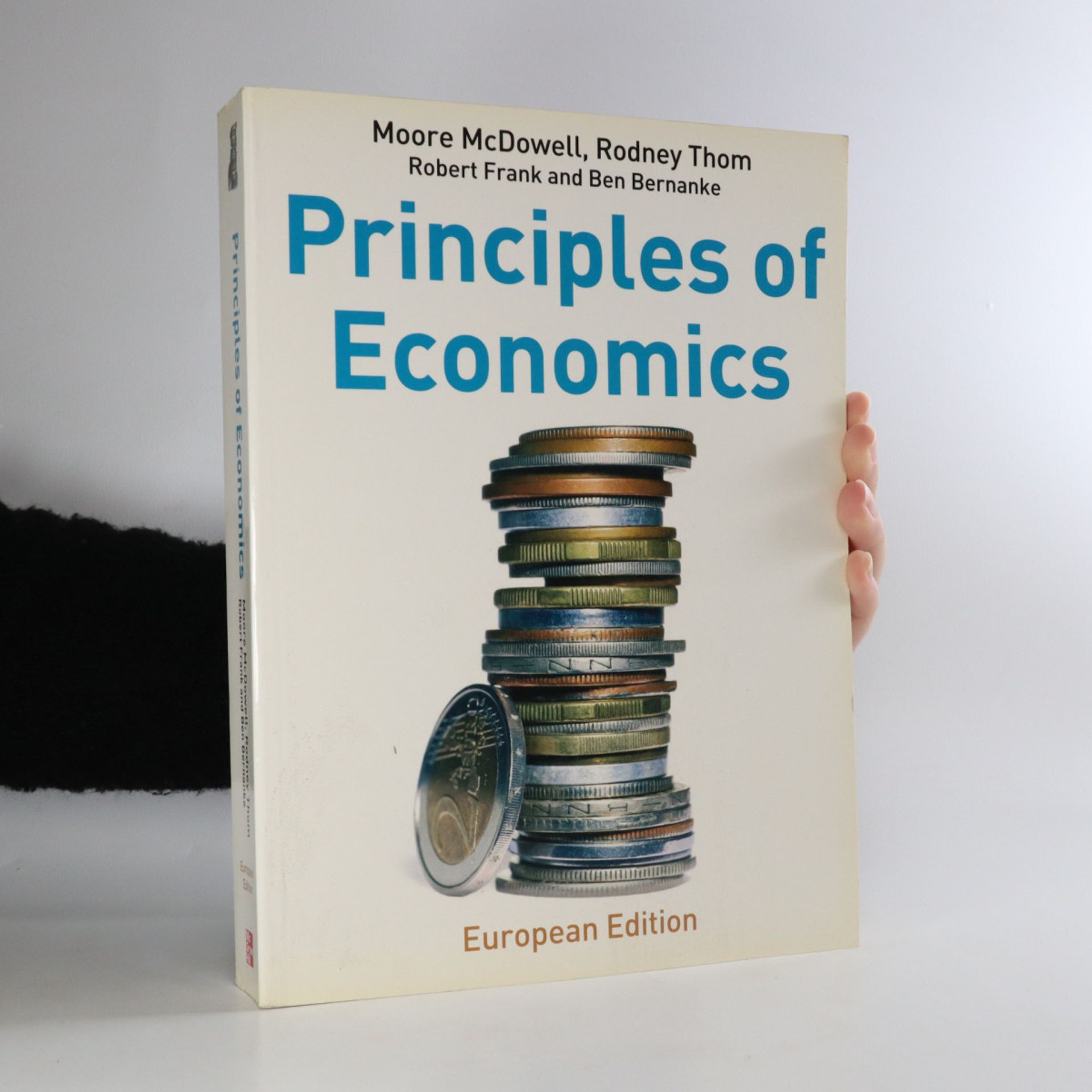Ekonomie
- 803 stránek
- 29 hodin čtení
Učebnice ekonomie dvou významných amerických ekonomů.
Ben S. Bernanke je známý svou prací v oblasti ekonomie a jako bývalý předseda Federálního rezervního systému. Jeho odborné znalosti v makroekonomii a hospodářských cyklech se promítají do jeho analýz finančních trhů a hospodářské politiky. Bernankeho přístup se vyznačuje důrazem na empirická data a teoretickou rigoróznost, což čtenářům nabízí hluboký vhled do fungování moderní ekonomiky. Jeho práce zkoumá složité vztahy mezi měnovou politikou, finanční stabilitou a hospodářským růstem a poskytuje cenné poznatky pro pochopení klíčových ekonomických výzev.







Učebnice ekonomie dvou významných amerických ekonomů.
A former chair of the Federal Reserve explains the transformation of one our most powerful and consequential institutions
In 2006, Ben S. Bernanke was appointed chair of the Federal Reserve, capping a meteoric trajectory from a rural South Carolina childhood to professorships at Stanford and Princeton, to public service in Washington's halls of power. There would be no time to celebrate, however -- the burst of the housing bubble in 2007 set off a domino effect that would bring the global financial system to the brink of meltdown. Here, Ben Bernanke pulls back the curtain on the tireless and ultimately successful efforts to prevent a mass economic failure. Working with two U.S. presidents and two Treasury secretaries, Dr. Bernanke and his colleagues used every Fed capability, no matter how arcane, to keep the U.S. economy afloat. From his arrival in Washington in 2002 and his experiences before the crisis, to the intense days and weeks of the crisis itself, and through the Great Recession that followed, Dr. Bernanke gives readers a unique perspective on the American economy.
Avoiding excessive reliance on formal mathematical derivations, this text presents concepts intuitively through examples drawn from familiar contexts. It relies throughout on a shortlist of core principles which it reinforces repeatedly by illustrating and applying each in numerous contexts.
Abel, Bernanke, and Croushore present macroeconomic theory in a way that prepares readers to analyze real macroeconomic data used by policy makers and researchers. With a balanced treatment of both classical and Keynesian economics, the comprehensive coverage makes it easy for instructors to align chapters to fit their own syllabi.
2008 saw one of the worst financial crises in generations, the global implications of which are still being felt today. Ten years later Ben Bernanke, Timothy Geithner and Hank Paulson reflect on the causes of the crisis, why it was so damaging, and what it ultimately took to prevent a second Great Depression. All three had crucial roles in the government's response- Ben S. Bernanke as chairman of the Federal Reserve; Henry M. Paulson, Jr., as secretary of the Treasury under President George W. Bush; Timothy F. Geithner as president of the Federal Reserve Bank of New York during the Bush years and then Treasury secretary under President Barack Obama. A powerful, warts and all account told with unprecedented clarity; from the flawed human response to the necessity to learn from the past and help firefighters of the future protect economies from the ravages of financial crises.Firefighting is a vital account of a defining moment in modern history and an inspiring lesson on leadership through crisis.
Contains Chapters 1-16. book is a value edition black and white.
This is a collection of Ben Bernanke's essays on why the Great Depression was so devastating and lasted so long. The essays also show that while the it was an unparalleled disaster on a universal scale, some economies pulled up faster than others, and some made an opportunity out of a disaster.